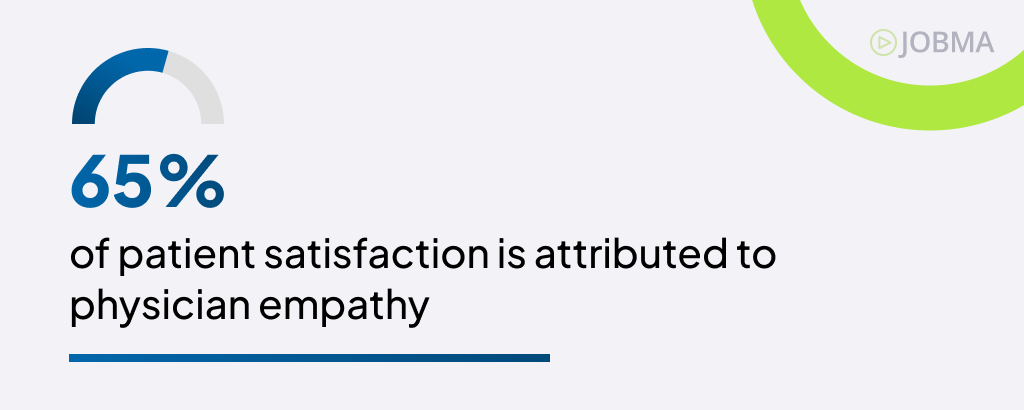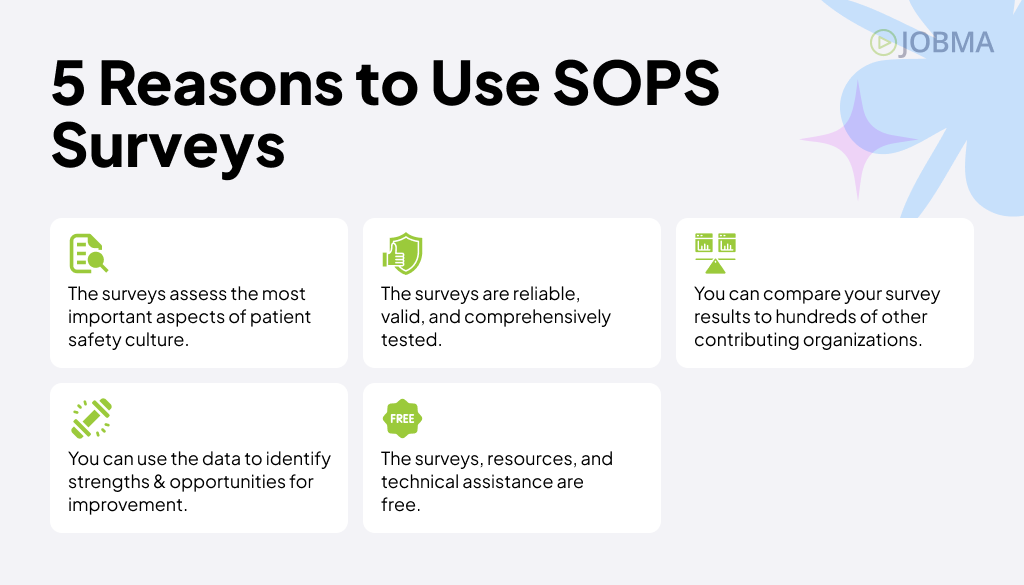Healing with Heart: The Importance of Soft Skills Assessment in Healthcare Hiring
Companies across industries recognize that developing essential soft skills among employees drives broader business outcomes. Healthcare organizations are no different. Often referred to as people skills, interpersonal skills, or simply essential skills, these capabilities are just as vital to success as technical expertise. As per LinkedIn Learning Workplace Report 2021, 9 of 10 critical skills for success identified by are non-technical.
- Resilience and adaptability
- Communication across remote or distributed teams
- Emotional intelligence
- Cross-functional collaboration
- Leading through change
- Change management
- Dealing with stress/being more mindful
- Time management
- Creativity
When you evaluate candidates, look beyond credentials and request behavior-based examples. For example, ask how a nurse de-escalated an anxious family member or how a surgical technologist rallied teammates during a short-staffed night.
Communication: A Key Skill to Look For
Communication in healthcare is not just a soft skill, it’s a critical competency that directly impacts patient outcomes. Patients and healthcare teams simultaneously rely on seamless communication at every stage of the care journey, from the initial phone call to a physician, to discharge instructions, to prescription coordination with a pharmacy. AI medical scribes have been shown to enhance communication efficiency and accuracy in healthcare settings.

During the hiring process, recognizing and assessing communication skills in candidates is vital. Ineffective communication can compromise patient safety, leading to avoidable errors and poor experiences. Research shows that approximately 28% of surgical adverse events are linked to communication failures during care transitions. These handoffs involve exchanging critical information about the patient’s condition and care plan, and any miscommunication can have serious consequences.
Recruiting healthcare professionals who are not only clinically proficient but also strong communicators is essential to building safer, more effective care environments. This is especially important in therapy-based healthcare such as speech therapists roles, where they are often working with young children. Therefore communication, patience and empathy are key components of the role. For example, even in specialized areas like NGS variant interpretation, effective communication ensures that complex genetic findings are explained clearly to both patients and care teams.
By placing a greater emphasis on interpersonal and communication skills during the hiring process, hiring managers can play a direct role in improving patient safety and healthcare outcomes. A healthcare virtual assistant can support these goals by managing patient intake, follow-up communication, and front-desk coordination, ensuring that critical information is delivered clearly and consistently while freeing clinical staff to focus on care. In parallel, providing patients with recommended platforms where you can find the best ankle support for sports can help improve recovery outcomes and enhance the overall care experience.
This lack of uniformity undermines the overall predictive validity of your hiring process. In executive search & recruiting, promoting these soft skills ensures that healthcare leadership reflects the compassion and communication it seeks to inspire in others.
Empathy: A Strong Pillar of Patient Satisfaction
A 2016 study from the American Academy of Orthopaedic Surgeons revealed that 65% of patient satisfaction was independently linked to how empathetic patients perceived their physicians to be. This underscores the fact that technical expertise alone isn’t enough; patients value healthcare professionals who understand and respond to their emotional and personal needs.

Beyond physicians, support staff and surgical teams who are naturally empathetic and trained in effective communication and customer service also contribute significantly to patient experiences and outcomes. For instance, when patients discuss sensitive issues like the symptoms of psoriasis, empathetic responses and active listening are crucial to building trust. Professionals looking to enhance their knowledge in patient care and wellness can pursue a masters degree in nutrition online. Candidates with these interpersonal strengths help foster trust, reduce anxiety, and elevate overall care quality.
This means going beyond resumes and certifications for the recruiters and focusing on assessing emotional intelligence and active listening that is essential for delivering compassionate, patient-centered care.

Methods To Evaluate Soft Skills
1. Listen to Patients and Families
Collecting real-time feedback through both quick text surveys and tablet surveys at discharge gives valuable insight into how patients perceive staff interactions. For even deeper understanding, engage with a family advisory council to uncover the everyday experiences that shape patient trust and satisfaction.
As a recruiter, you can identify soft skills like empathy, active listening, and respect through situational judgment tests or role-playing exercises. Also, you can use them as benchmarks when evaluating candidates. Hiring candidates who can consistently deliver these experiences isn’t just good for patient care but for your organization’s reputation and success.
2. Take 360-Degree Staff Feedback and Culture Surveys
The most impactful improvements come when every perspective is valued. 360-degree reviews, where peers and managers provide feedback on interpersonal behaviors. These reviews reveal blind spots that resumes or interviews might miss. For instance, a top-performing surgeon who’s respectful to senior physicians but dismissive toward nurses.
As a hiring professional, it’s equally important to look at broader organizational indicators. Compare internal reviews with data from SOPS surveys by AHRQ, which measure key aspects like psychological safety, communication flow, and burnout levels. Low scores in areas such as communication, openness, or teamwork across units can signal the need to strengthen soft skills.

When these patterns emerge, they should inform your hiring criteria so that you look beyond clinical competency and prioritize emotional intelligence, collaboration, and communication.
3. Watch What Happens on the Ground
The best way to gauge a clinician’s communication is to see how they perform in the clinical setting itself. Partner with your clinical team to arrange “shadowing” sessions, where a trained observer tags essential behaviors like introduction, making eye contact, sitting at the bedside, using teach-back techniques, and offering a genuine thank-you.
You can even deploy “mystery-patient” phone calls or secret-shopper visits to verify that courtesy and clear explanations hold up when clinicians don’t know they’re being evaluated.
By incorporating these observational insights into your recruitment process, whether during final interviews, trial shifts, or site visits, you’ll identify candidates who not only meet clinical standards but also consistently deliver the empathy and clarity patients expect.
4. Track Learning and Professional Development Milestones
Learning and professional development data provide a clear measure of progress and growth. Pay attention to who sees value in soft-skill development through courses or role-plays. Those who are not fulfilling the parameters of courses or low completion numbers indicate that training isn’t reaching everyone. Pair with quick quizzes or create a quiz before and after each session to know the depth of learning by people. Only attendance does not work.
Common Pitfalls in Soft Skills Assessments
1. Over-Reliance on Self-Reporting
Candidates may exaggerate strengths and minimize weaknesses on CVs and in interviews, presenting a polished narrative. Without objective assessments, such as behavioral simulations or peer feedback, recruiters cannot verify these claims. This gap leaves hiring decisions based on anecdote rather than evidence, risking misalignment between perceived and actual soft-skill capabilities.
2. Lack of Structured, Standardized Questions
Unstructured interviews allow each interviewer to ask disparate questions, yielding fragmented, inconsistent insights. Without a robust, standardized framework, evaluating and comparing candidates becomes subjective, and it’s impossible to identify which soft-skill inquiries genuinely correlate with on-the-job performance. This lack of uniformity undermines the overall predictive validity of your hiring process.
3. Insufficient Simulation of Real-World Context
Relying on hypothetical scenarios such as “What would you do if…?” fails to reveal real-world reactions under pressure. Without incorporating role-plays or objective behavioral evaluations, recruiters cannot observe how candidates genuinely engage with patients and colleagues, generating observable outcomes in fast-paced clinical settings, leaving critical interpersonal competencies unverified.
4. Over-Weighting References and Peer Feedback
Standard reference checks typically yield positive endorsements unless interviewers request detailed examples, while peer assessments often hesitate to offer candid critiques, concentrating on select behaviors. This reluctance obscures authentic performance insights and perpetuates blind spots, making it difficult for recruiters to evaluate a candidate’s true interpersonal and professional competencies.
5. Failing to Train Assessors
Lacking clear rubrics and training on expected performance leads observers to inconsistently rate behaviors as “excellent” or “poor.” This variability undermines the establishment of reliable, defined benchmarks and hampers the continuous refinement of hiring processes. In fields where precision is essential, such as those involving peptide vendors, clear standards are critical, and the same applies to recruitment: structured criteria enable accurate competency measurement and the development of evidence-based best practices.
The Solution
To overcome these challenges, recruiters should adopt a structured, multimodal assessment process. You can use behavior-based interviews with clear scoring rubrics to ensure consistency across candidates. Objective evaluations such as role-plays, shadowing, and simulations offer realistic insights into how candidates communicate and handle stress.
Proper training and calibration must be provided to the assessors to maintain uniform standards and reduce bias. Reference checks should ask for specific healthcare soft skills examples to obtain honest feedback. Reviewing hiring data and benchmarks to refine the approach and align selection criteria with performance outcomes.
Final Thoughts
Soft skills in healthcare aren’t just about credentials or procedures, they help patients feel supported when they’re scared, in pain, or healing. Studies have shown that patients heal more effectively when they feel heard, understood, and respected.

When soft skills are prioritized in the screening process, you’re doing more than filling positions. You build teams that deliver compassionate, human-centered care. Highlight emotional intelligence in your job descriptions, integrate behavioral assessments into interviews, and champion ongoing development of communication and empathy.
By celebrating and cultivating these qualities, you’ll transform good clinicians into great ones and turn solid teams into compassionate communities, shaping the future of healthcare one hire at a time.

FAQs
What are soft skills in healthcare?
Soft skills in healthcare are personal qualities that help professionals interact effectively with patients, families, and colleagues. These include communication, empathy, teamwork, adaptability, and emotional intelligence. They support the technical side of care by improving how information is shared and how support is given in day-to-day situations.
Why are soft skills important for healthcare professionals?
Soft skills help healthcare professionals connect with patients, explain medical information clearly, and work smoothly within care teams. These skills reduce misunderstandings, ease patient anxiety, and lead to better cooperation during treatments, ultimately improving the quality of care and overall patient satisfaction.
Which soft skills are most essential in healthcare?
The most crucial soft skill in healthcare is strong communication. The ability to stay calm under pressure, empathy, active listening, time management, and collaboration. These traits help professionals respond to patients’ needs, manage challenging situations, and work efficiently with others in fast-paced clinical environments.
What are examples of behavioral questions to assess soft skills in healthcare interviews?
Some of the relatable examples to assess soft skills in healthcare are:
“Can you describe a time when you had to explain something complex to a patient or their family?” or “Tell me about a moment when you had to work with a difficult team member during a shift.” These types of questions reveal how candidates apply soft skills in real-world situations.



